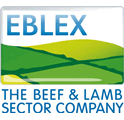| 08/10/07
Outwintering growing cattle and spring-calving cows on
a variety of brassicas can be extremely useful in extending
forage supplies to reduce feeding costs, suggests the English
Beef and Lamb Executive (EBLEX). But only if the right
varieties are grown and utilised with correct management
to ensure high levels of production, performance and animal
welfare.
Kale, turnips, swedes, stubble turnips and forage rape
typically cost less to produce per unit of dry matter than
grass silage, and overall wintering costs tend to be far
lower when the capital costs of the systems are included,
providing they are grazed in situ rather than cut and carted.
As well as extending winter forage supplies, brassicas
can be valuable both in maximising production per hectare
and in reducing building, bedding and feeding costs. Summer
sowing after grazing or first cut silage-making generally
provides forage for grazing from the autumn to April, enabling
new leys to be undersown in cereals or forage maize drilled
the following spring.
For the greatest success in outwintering stock on brassicas,
EBLEX recommends:
- Budgeting feeds carefully and planning
ahead to ensure good access and grass runbacks that provide
adequately dry and sheltered lying areas;
- Selecting free-draining
fields that can profit from grassland renewal;
- Soil-testing
the fields and correcting any nutrient shortages or imbalances
ahead of sowing;
- Using the appropriate drilling method
for the conditions – direct drilling may help retain
soil moisture and improve poaching resistance, but ploughing
can result in a better crop;
- Monitoring crops closely
throughout, and particularly for the first six weeks
of establishment, to identify and combat any pest or
disease problems;
- Putting any extra feed required (straw
or silage bales) into the field before the winter to
minimise the need for vehicular traffic on wet ground;
- Managing
grazing allocations to match daily feed requirements
closely to available dry matter supplies while minimising
poaching pressures;
- Introducing stock to brassicas carefully,
never when they are hungry and only for short periods
over at least the first 7-10 days;
- Limiting brassicas to no more than 50% of
the animals’ daily dry matter intake, providing
the remainder of the diet as good sources of fibre like
hay, straw or high dry matter silage;
- Providing adequate
water at all times (3-5 litres/kg of feed dry matter);
- Maintaining
a good mineral status in all stock in the run-up to and
throughout the grazing period, with readily-accessible
minerals always on offer;
- Housing pregnant cows one month
before calving for easier control and management as well
as to ensure the most hygienic conditions for newborn
calves; and,
- Inspecting grazing animals regularly for
health, welfare and body condition, addressing any problems
that arise promptly and effectively.
EBLEX and British Seed Houses have established seven outwintering
demonstration farms across the country as the basis for
a series of practical meetings over the coming winter.
Details are available from the EBLEX Beef Better Returns
Programme team on 0870 2418829.
 Adding Rumen Protected Fat to Winter Dairy Diets Proves Cost-Effective Adding Rumen Protected Fat to Winter Dairy Diets Proves Cost-Effective
 Rapid Finishing of Cattle Still Provides Best Returns Rapid Finishing of Cattle Still Provides Best Returns
 Applications Open for New Energy Crops Scheme Applications Open for New Energy Crops Scheme |



